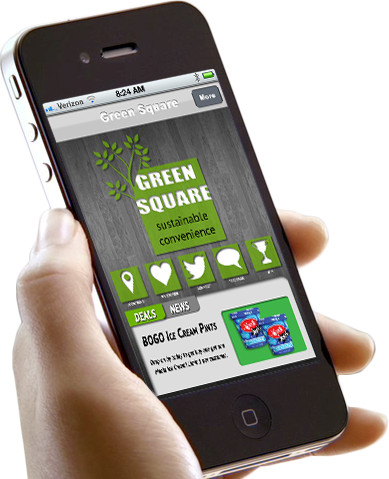The Year of the App, Part 2
JERSEY CITY, N.J. -- Much like the Wizard of Oz, mobile app developers work behind the curtain to make magic happen at the touch of a smartphone screen. As more convenience store chains look for ways to connect with their customers on a digital platform, more developers are launching new products and services to help their retailer clients.
In the past year, these developers have made strides in improving technology so that most c-store mobile apps are now available for download on both iPhone and Android devices. In addition, developers customize their mobile app to each retailer's needs, enabling smaller chains to enjoy the same features and benefits -- such as a store locater, promotions, mobile coupons and customer feedback -- that larger chains use.
In Part 1 of "The Year of the App," CSNews Online gained insight from a c-store retailer. Here is a mobile app developer's perspective:
The Developer
VERGE Retail is the brainchild of North Carolina-based MR Williams, a grocery distributor. This year, the software solutions company saw its c-store mobile app platform VERGE Connect gain momentum, as c-store chains Plaid Pantries Inc., Albemarle Oil Co. (ALCO) and, most recently, MFA Oil Co.'s Break Time, all adopted it.
According to Chief Innovations Officer Carson Kuehne, one of the platform's best features is its turnkey loyalty program that allows a retailer with no information technology resources to manage and deploy rewards to customers in very little time. Kuehne discussed these features with CSNews, as well as the recent surge in c-store mobile apps.
CSNews: As a developer of mobile apps, what are some trends you have seen this past year?
Kuehne: I think we've seen the conversation change. Those questioning why the need to take their brand mobile are part of a shrinking minority, as the majority of retailers I speak with agree they need a mobile initiative, and so the conversation in now more about how.
 |
| Carson Kuehne |
CSNews: What's the impetus behind this change in conversation?
Kuehne: As more decision makers get smartphones and start to understand their potentials, I think they naturally realize the implications for their brand being on such a device. In 2013, the majority of American adults now have smartphones, which wasn't quite the case this time last year. In addition to adoption, the cost has come down as turnkey solutions have made it efficient to launch a branded app. Finally, I think some retailers are simply feeling the heat from their competition that has already launched a mobile initiative.
CSNews: What strategies are the most effective for c-store retailers in trying to reach their customers?
Kuehne: I believe a branded app can present convenience features and value for the customer, but communicating that message can be a challenge. That's OK because customers don't have to understand the complete message or everything your app can do for them. Customers just need a reason to download the app, and the most obvious way to get a customer's attention — and this is generally true across retail — is to offer them savings.
 CSNews: What is a "customer-facing initiative" and how does that apply to developing a mobile app for a c-store retailer?
CSNews: What is a "customer-facing initiative" and how does that apply to developing a mobile app for a c-store retailer?
Kuehne: A customer-facing initiative is any effort, which the end consumer will directly interface with. A branded app, I would argue, is the pinnacle of customer-facing technology because it allows a brand experience to persist between store visits through existing on a device that customers take everywhere with them, and use nearly non-stop. What's more, the customer is providing the marketing medium themselves. There is no lag time with initiatives pushed to this medium, and no material cost (printed ads) with each marketing push. This truly is an unprecedented proposition for the retailer that only recently has become feasible.
CSNews: When customizing a mobile app for c-stores, how are you able to measure the customer loyalty return?
Kuehne: There are essentially two pillars that a customer's loyalty is built upon: their awareness of a brand and their opinion of a brand. At a fundamental level, a mobile app is built around increasing brand awareness and improving relations with the customer. If we have that understanding, then suddenly we stop building features simply because they sound impressive, and we instead focus on building features that point back to those two pillars.
CSNews: Do you have any advice for c-store retailers who are considering taking the plunge with a mobile app?
Kuehne: There are many providers out there, and many alternatives or routes to having the mobile initiative box checked. Many of these options lead to runaway or ballooning costs by design. If a retailer doesn't know exactly what this program will cost them in year one and subsequent years, then look elsewhere. Additionally, alternatives like mobile websites will never be as capable as actual apps, but rather represent the absolute minimum a retailer can do, and is the equivalent of dipping one's toes in the pool and calling it swimming. That's not to say that some of these alternatives can't complement a true mobile initiative.
